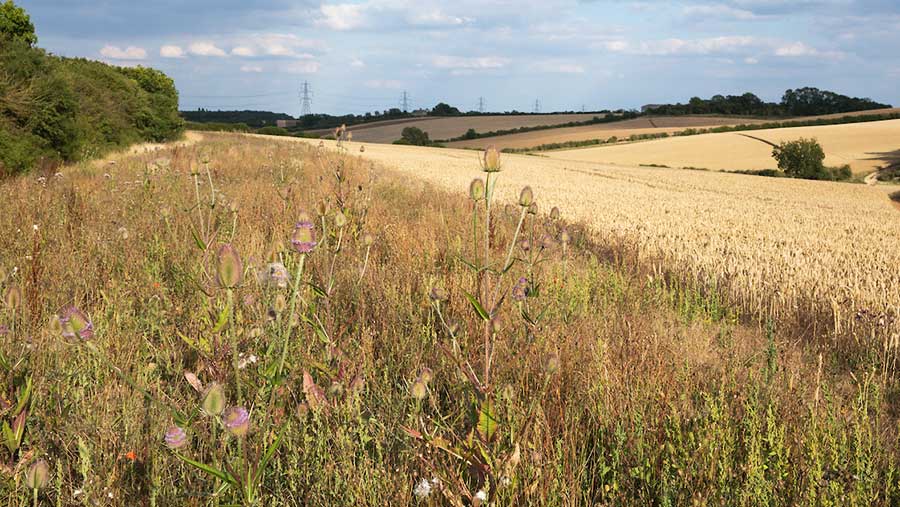Environmental Land Management scheme – what we know so far
 © Tim Scrivener
© Tim Scrivener Farmers in England will see Basic Payment Scheme (BPS) funding phased out and new agri-environment funding rolled in over a seven-year transition period.
BPS money will be reduced in stages from 2021-2027, with none available in 2028. The cuts have been announced for 2024 but no figures are available beyond that.
The direct payment reduction percentages by payment band for 2021-2024 can be seen on the Farmers Weekly website.
In 2022, businesses receiving up to £30,000 in BPS will face a reduction of up to 20%, with those receiving £150,000 or more seeing a reduction of 40%.
See also: How Defra’s trials for developing ELM schemes are working
Full details on payments to be made available to farmers under the new Environmental Land Management system (ELMs) – also referred to as Environmental Land Management scheme – are still in the works.
ELMs began its test and trial period in 2019, with pilots running from 2021.
Defra’s ambition was for 1,250 businesses to enter the ELMs pilot scheme in 2021, building to 15,000 by the end of the pilots in 2024.
The details of the Sustainable Farming Incentive pilot were published in March 2021, with applicants able to submit expressions of interest the same month, and full applications by the end of September.
The ELMs will replace BPS and Countryside Stewardship funding and its rollout is planned from 2024-2027.
According to a National Audit Office report published in June 2019, Defra aims to have enrolled 82,500 farmers and land managers by 2028.
In 2021, Defra pledged that SFI payments would be higher and fairer than previous schemes, as well as being regularly reviewed.
Environmental services and benefits
ELMs will pay farmers for environmental services and benefits, with pricing based on a natural capital valuation approach.
The benefits include: improved air, water and soil quality, increased biodiversity, climate change mitigation, cultural benefits and better protection of historic environments.
Former Defra secretary Michael Gove promised farmers transferring from agri-environment schemes into ELMs will not be disadvantaged.
The scheme will reduce the complexity of the application process, according to Defra.
Agriculture Act 2020
The 2020 Agriculture Bill was introduced on 16 January. It confirmed the main areas farmers will be expected to deliver on include clean air, reductions in environmental hazards and pollution, thriving plants and wildlife, clean water, enhanced landscapes and measures to minimise the effects of climate change.
This Bill passed into UK law in November 2020 – receiving royal assent after more than 100 hours of parliamentary debate – and became the Agriculture Act 2020.
Three-tier approach
The government released an ELMs policy discussion document on 25 February that proposes the introduction of a single scheme with three tiers.
Tier 1
This would encourage farmers to adopt environmentally sustainable farming and forestry practices and they would be paid for taking action rather than delivering outcomes.
Tier 2
This would encourage farmers, foresters and other land managers with specialist knowledge to deliver locally targeted environmental outcomes. Payments could be received for services such as tree planting, flood mitigation and habitat creation, restoration or management.
Tier 3
This would pay farmers and land managers who undertake transformational landscape-scale projects, such as restoring peatland.
This page will be updated as more information about ELMs is released. This article was last updated on 17 September 2021.
